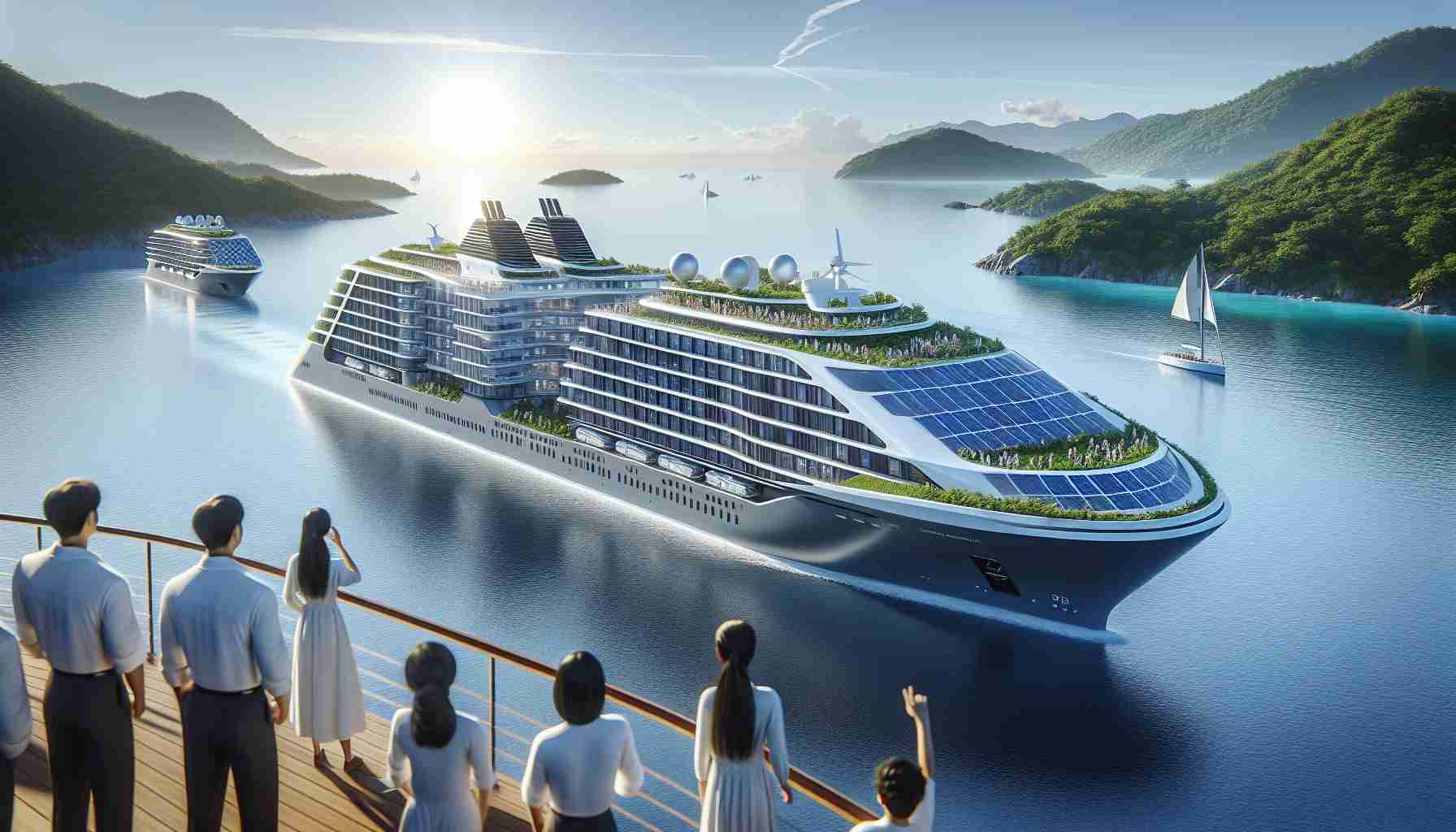Revolutionizing the Seas
The era of colossal cruise ships is evolving, with innovative strides towards sustainability reshaping the maritime landscape. As vessels continue to expand, a wave of environmentally conscious transformation is underway.
Exploring Sustainable Horizons
Gone are the days of behemoth ships dwarfing historical icons. New eco-friendly initiatives are steering the cruise industry towards a greener future, offsetting potential environmental repercussions. The horizon beckons vessels that balance size with sustainability.
Charting a New Course
From luxurious amenities to cutting-edge eco-technologies, the latest cruise ships are at the forefront of sustainable innovation. With a focus on reducing emissions and enhancing energy efficiency, the maritime sector is navigating towards a more sustainable future.
Embracing Responsible Tourism
The rapid growth of the cruise industry has sparked a reevaluation of its environmental impact. Harnessing renewable energy sources and adopting eco-friendly practices, cruise lines are setting sail towards a more sustainable and responsible form of tourism.
Forging a Greener Path
As the industry sets its sights on net-zero carbon emissions and enhanced environmental stewardship, the seas are witnessing a paradigm shift towards sustainable cruise innovation. Embracing change, cruise lines are charting a new course towards a more eco-conscious future.
Setting Sail Towards Sustainable Cruise Innovation
In the world of global tourism, the cruise industry stands as a significant player, offering travelers a unique way to explore different destinations while enjoying onboard amenities and services. While the focus has traditionally been on luxury and entertainment, recent years have seen a paradigm shift towards sustainable cruise innovation. Let’s delve into some key questions and aspects surrounding this transformative trend.
What are the key challenges associated with sustainable cruise innovation?
One of the primary challenges facing sustainable cruise innovation is the high energy consumption of cruise ships. These vessels require massive amounts of fuel to operate, leading to significant emissions of greenhouse gases and other pollutants. Finding ways to reduce these emissions while maintaining operational efficiency is a crucial challenge for the industry.
What are the advantages of sustainable cruise innovation?
Sustainable cruise innovation offers a range of benefits, both for the environment and for the industry itself. By adopting eco-friendly practices and technologies, cruise lines can reduce their environmental footprint, attract environmentally conscious travelers, and contribute to the overall sustainability of the tourism sector. Moreover, implementing sustainable practices can lead to long-term cost savings for cruise operators.
What are the disadvantages or controversies associated with sustainable cruise innovation?
While the push for sustainable cruise innovation is commendable, there are some disadvantages and controversies to consider. Critics argue that the overall impact of cruise tourism on local communities and ecosystems may still be significant, despite efforts to reduce emissions and waste. Additionally, the cost of implementing sustainable technologies can be substantial, posing a financial challenge for some cruise operators.
As the cruise industry continues to evolve and embrace sustainable practices, it is essential for stakeholders to address these challenges and work towards solutions that benefit both the environment and the industry as a whole. By fostering innovation, collaboration, and responsible tourism practices, the future of cruising can be transformed into a more sustainable and eco-conscious endeavor.
For more information on sustainable tourism initiatives within the cruise industry, you can visit Sustainable Tourism Website. Explore the latest trends and developments shaping the future of global tourism.
 The Rise and Fall of BigBear.ai: Is AI Innovation Enough to Overcome Financial Storms?
The Rise and Fall of BigBear.ai: Is AI Innovation Enough to Overcome Financial Storms?  Unlocking Secrets: Mario Kart World’s Vast Exploration Surprises Fans
Unlocking Secrets: Mario Kart World’s Vast Exploration Surprises Fans  Why Your Electric Car Might Last Much Longer Than You Think
Why Your Electric Car Might Last Much Longer Than You Think  How General Dynamics Surged While Investors Bet Big on Defense
How General Dynamics Surged While Investors Bet Big on Defense  The Art Professor Bound for Space: A Galactic Journey with Virgin’s Visionary
The Art Professor Bound for Space: A Galactic Journey with Virgin’s Visionary  Ingenious Betrayal: Two Faces of Innovation at Qualcomm
Ingenious Betrayal: Two Faces of Innovation at Qualcomm  Asteroid 2024 YR4: A Cosmic Puck Heading Toward the Moon?
Asteroid 2024 YR4: A Cosmic Puck Heading Toward the Moon?  Unmasking the “Pig Butchering” Scam: How Sophisticated Schemes Fleeced Millions in Cryptocurrency
Unmasking the “Pig Butchering” Scam: How Sophisticated Schemes Fleeced Millions in Cryptocurrency  The Shocking Market Plunge That Shocked the World: What Really Happened?
The Shocking Market Plunge That Shocked the World: What Really Happened? 